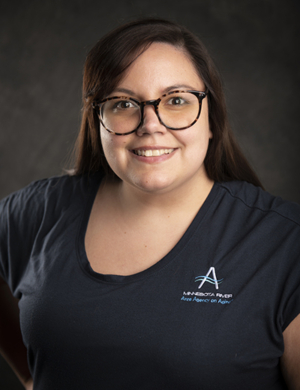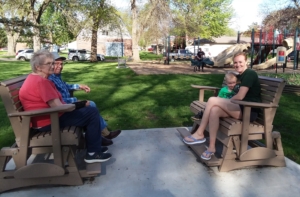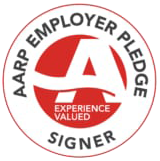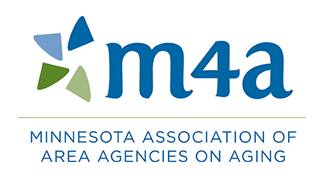with Laura Thomas, Director of Aging Well at Prairie Five Community Action Council
A grandparent who is raising a grandchild, a spouse providing care for their partner, an adult child who stops in once a week to get meds set up for a parent and tend to household chores – these are all examples of caregiving. On the prairie, a modest estimate is that 25% of us serve as a caregiver for others in an informal capacity.
There isn’t a class in school that everyone takes or a manual that we all receive in life to prepare us for caregiving. It can get overwhelming and it’s common for a caregiver to wonder where to find answers, ideas, or support. The Minnesota Board on Aging (MBA) has two wonderful options that are available to you through Prairie Five to help identify and address needs and provide support – caregiver consults and a database rich with resources.
I am a Caregiver Consultant for Prairie Five’s counties (Big Stone, Chippewa, Lac qui Parle, Swift, Yellow Medicine) and the MBA describes this service as “trained professionals that help you on an individual basis with problem-solving, information, skills and emotional support. Your consultant can help develop strategies for you to achieve a balanced lifestyle allowing you to both provide good care and protect your own health.” Sometimes I get calls from people who are worn out and just looking for a person who will listen compassionately and non-judgmentally. I always feel honored when people share their stories or experience with me – our struggles are what make us human! Caregiving can feel isolating and opening up to another brings the realization that we aren’t alone in the world.
Recently, the MBA announced that they are able to make Trualta available to caregivers for free for the next 1.5 years. I got so excited when I started browsing the website – I can’t believe everything they offer! Trualta is an easy-to-use, personalized, interactive portal that helps caregivers manage care on their own. It is offered ‘on demand’ which means that anytime you want to use the service, it is available. It can be accessed on a tablet, smartphone, or computer and is so convenient a person could use it while waiting for an appointment or before bed.
Trualta is offered to family, friends, or neighbors who are caregiving in Minnesota. It has short lessons that have been created by clinical experts in aging and allows you to personalize your experience based on what best fits your situation. The Personal Care section, for example, has information on ‘Shaving,’ ‘Oral care for older adults,’ ‘Skincare,’ and ‘Choosing the right products when assisting in the bathroom,’ to name a few. The Caregiver Wellness section includes ‘Balancing work and caregiving,’ ‘Caregiver guilt,’ and ‘Reframing negative thoughts.’ And, it’s more than just a place to find skills training; there are also activity ideas such as, ‘Relax and unwind,’ ‘Good morning stretches,’ and ‘Keeping hands and minds busy.’
There are also several longer presentations by Teepa Snow, a dementia expert who is well-known and highly respected for her informal, practical approach. If you can check the weather on your device, you have the skills to navigate this site! If you are interested in more information or would like to set up an account or to find out who are the Caregiver Consultants in your area, call Senior LinkAge Line at 800-333-2433. There are a limited number of Trualta user licenses for the state so now is the time to get started!


 One example of a low-cost need identified through a community survey was the need for a handrail on outdoor steps to assist people with accessing a local building. A group of volunteers installed a handrail within a few days of identifying the need. In another community, the need for gatherings was identified. The community’s churches decided to rotate offering a meal to older adults once a month, with volunteer programs also offered each month. In a town of 800 people, the monthly luncheons averaged an attendance of 50 – 60 people.
One example of a low-cost need identified through a community survey was the need for a handrail on outdoor steps to assist people with accessing a local building. A group of volunteers installed a handrail within a few days of identifying the need. In another community, the need for gatherings was identified. The community’s churches decided to rotate offering a meal to older adults once a month, with volunteer programs also offered each month. In a town of 800 people, the monthly luncheons averaged an attendance of 50 – 60 people.


